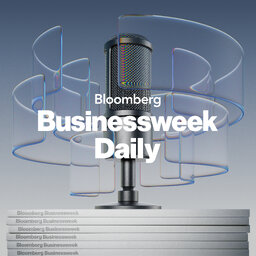US Jobs Post Smallest Gain in Six Months as Unemployment Rises
Watch Carol and Tim LIVE every day on YouTube: http://bit.ly/3vTiACF.
Martha Heller, Founder of Heller Search, shares her thoughts on the April jobs report and tech employment trends. Charlie Eaton, Associate Professor of Sociology at University of California, discusses his book Bankers in the Ivory Tower: The Troubling Rise of Financiers in US Higher Education. Remi Guillemin, Head of Watches at Christie’s, talks about the upcoming auction of very rare watches from the collection of Formula 1 racing legend Michael Schumacher. And we Drive to the Close with Amy Magnotta, Co-CIO at Ategenos Capital.
Hosts: Carol Massar and Tim Stenovec. Producer: Paul Brennan.
In 1 playlist(s)
Bloomberg Businessweek
Carol Massar and Tim Stenovec bring you reporting from the magazine that helps global leaders stay a…Social links
Follow podcast
Recent clips

Trump Backs Off Greenland Tariffs, Citing ‘Framework’ Deal
37:23

Netflix to Boost Program Spending in 2026, Crimping Profit
39:00

The US Auto Business Through the Aftermarket's Eyes
11:37
 Bloomberg Businessweek
Bloomberg Businessweek